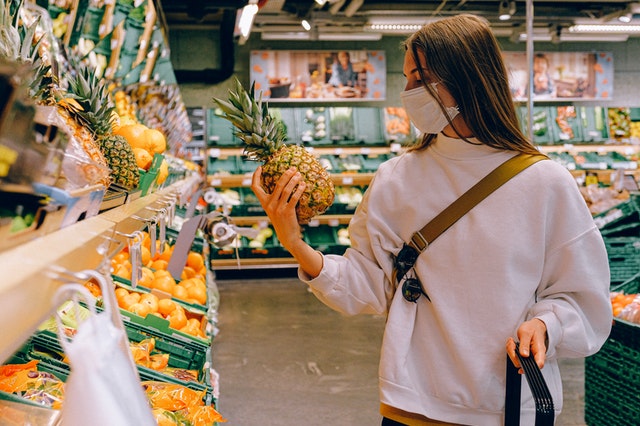A
A
A
The coronavirus, or COVID-19 has put the world in a very scary spot, one that relies on social distancing and staying at home. However, there are a multitude of people who work for the highly successful delivery service known as Instacart who are out risking their health to provide groceries and other items to those staying at home in quarantine. This pandemic has increased the level of unemployment, putting tons of individuals out of work. Just because the coronavirus has put someone out of work, doesn’t mean that rent, or grocery shopping becomes free.
As a result, Instacart shoppers have stepped up and taken this an employment opportunity in which they can work all day grabbing various items for individuals, and make more than they normally would. But the question is raised, is risking health worth the money?
Read More »
Many workers handle 2-3 Instacart grocery deliveries at one time. There are now more than half a million Instacart workers in America. These workers are constantly monitoring their
Instacart mobile app, while trying to stack more and more on demand requests from customers. Of course, there are less workers than there are Instacart mobile app users. This has created extremely long wait times, which can last up to a solid week. However it pans out, money is definitely here to be made, and someone has to do the work.
Many of these workers are struggling to pay their basic bills. The stimulus package can only last them so long. The other issue is that other gig type companies such as Uber, Lyft, Airbnb, and others have all seen a pretty drastic decrease in demand. The extra income found after bars close and rideshare rates increase is pretty much gone for now. Gig workers are forced to move to companies that still have a demand even with the full on pandemic.
As these workers are forced to switch over to Instacart, the pay has dropped pretty drastically. Many people stocked up on food during the beginning of the outbreak and the orders are thinning out as people try to save what little cash they have. These factors combined with the surge of new Instacart shoppers has meant a pretty drastic fluctuation in the supply and demand of their services. All of these issues are still quite present even though the order volume on Instacart is still up 300% from a year ago last April.
In addition, many of the Instacart shoppers have gone on strike until they receive better safety gear. This is now one of the company’s main concerns. However, not everyone can just simply go on strike if they need to support their family. This has created a sort of do it yourself approach for many shoppers. No consumer wants to see a shopper arrive at their door without a mask or gloves on.
A growing number of Instacart shoppers are also forced to drive pretty long distances to reach larger metropolitan areas where the orders are more plentiful. This means that the cost of gas and the wear and tear on the shopper’s car are also huge factors in addition to the possibility of getting sick.
Another huge issue has been some store’s dwindling supply, especially in the meat and produce departments. Often times, customers only receive a small percentage of what they are actually attempting to purchase. This has created a unique relationship between the actual workers in the grocery store and the people shopping for others. It is a stressful situation for both parties. Wearing gloves and masks will decrease the likelihood of getting the virus, but some things just can’t be easily avoided in busy supermarkets across the world.
The saving grace for many shoppers, however, is that many who are more fortunate have been tipping quite nicely. These people know how important the service is to their survival. One problem here though is that wait times can be long and the idea of giving a shopper a huge tip isn’t always the most obvious.
Overall, be sure to keep all of these things in mind if you decide to order anything to get delivered to your home. The people put in this tough situation will certainly appreciate it and you will feel better that you are helping someone risking their well being each and every day.






